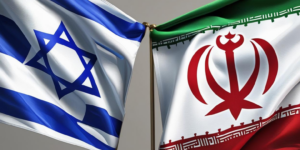Accused Pastor Gets Breakthrough in Kashmir
A court has ordered the Jammu and Kashmir state government to temporarily halt criminal proceedings against a pastor accused of bribing Muslim youths to convert to Christianity.
The state’s High Court on Feb. 11 halted proceedings in the police complaint of “promotion of religious enmity by conversions” against the Rev. Chander Mani Khanna of the Church of North India denomination.
Responding to a petition by the pastor to quash the complaint, the court issued notices to top officials of the state’s police department and interior ministry because investigators have not been able to formulate charges even though the case was registered last Oct. 29, Khanna told Compass by phone.
Khanna, who retired on Jan. 16 from All Saints Church in Kashmir Valley’s Srinagar city, seemed relieved.
“After I was released on bail, the court had asked me not to leave the state, but with this stay order I can at least travel out,” he said.
The pastor, who remained in jail for more than 40 days until he was released on bail last Dec. 1, added that the court asked the government to file its response by March 14, and then it will set the date for the next hearing. Police have not been able to gather evidence of “conversion by allurement” against Khanna.
The pastor added that real victory will be achieved when he is allowed to return to Kashmir, in the Muslim-majority region of the state.
“We do not want to retaliate,” he said. “We want to promote the spirit of acceptance, accommodation and tolerance and be salt to the community in Kashmir for the betterment of the whole country.”
Kashmir’s shariah (Islamic law) court, which has no legal authority in India, in December found Khanna, the Rev. Jim Borst, a Dutch Catholic missionary and Gayoor Messah, a Christian worker, guilty of “luring the valley Muslims to Christianity” and ordered them to leave the state. The court, headed by Kashmir Grand Mufti Bashir-ud-din Ahmad, also “directed” the state government to take over the management of all Christian schools in the region.
Muslim leaders had been rallying against Christians after a video posted on YouTube last October showed the baptism of formerly Muslim youths at All Saints Church. The sharia court summoned Khanna and held a hearing before announcing its verdict against the three pastors.
Reconversions
Life has been extremely difficult for Kashmir’s Christians since the sharia court’s verdict, said a Christian worker who fled the region last month along with 15 others.
Muslim clergy, he told Compass, claim to have converted 155 Christians back to Islam.
“But I don’t believe that,” added the source, who said he fled fearing police would force him to speak against Khanna. “I have spoken to some of them, and they said they neither denounced their faith, and nor did they embrace Islam. Out of fear, they listened to the ‘advice’ while remaining non-committal.”
Local online news portal Kashmirwatch.com late last month reported that an Islamic seminary in north Kashmir was working with 115 converts to bring them back to Islam.
“We are collecting details,” it quoted a seminary official as saying. “We would try to catch them all and persuade them to revert to Islam.”
Local Christians say the sharia court has formed area committees to prevent conversions and reconvert Christians. Committee members are visiting Christians’ homes and allegedly pressuring them and their families to return to Islam.
Kashmirwatch.com reported that over 20,000 Kashmiri Muslims had converted to Christianity since separatist militancy erupted in Kashmir in the 1990s. According to a September 2002 report in Christian media in the United States, it reported, the number of “neo-Christians” was 15,000.
“The conversions are likely to have surged past 20,000, with over a dozen Christian missions and churches based in the U.S., Germany, the Netherlands and Switzerland operating in the state,” the news portal stated.
Local Christians said the report in the U.S. media was not accurate.
Support from Separatists
While most Muslim leaders have turned against Christians and the state government is apparently unconcerned about their safety, a highly influential separatist group has spoken out for Christians.
Syed Ali Shah Geelani, head of a faction of the Hurriyat Conference separatist political front, has reportedly said his group does not support the sharia court’s fatwa calling for the expulsion of a few Christian workers from the state.
“Banishing someone is no solution,” the Kashmir Times quoted him as saying. “As Muslims, it is our responsibility to ensure that we reach out to our youth and create awareness about Islam.”
The 82-year-old leader also acknowledged the contribution Christians have made to Kashmir.
“They are part and parcel of the society,” he reportedly said. “It is our duty to protect them. Kashmiris cannot ignore the contributions of Christian missionary schools towards the educational system in the Valley. Unfortunately, Kashmiri Muslims have not been able to build an educational institution like those by the Christian missionary schools despite all available resources.”
A fact-finding team, which included a senior official of the National Commission for Minorities, visited Kashmir from Nov. 29 to Dec. 2 last year. It learned that some extremist groups and other vested interests had been trying to use the issue of conversion in their confrontation with the state government, political parties and moderate Islamic groups. They were “looking to score political points against each other, and any excuse was good enough to foment trouble,” the fact-finding team reported.
The state government apparently sided with the extremists to preempt any unrest, local residents told the fact-finding team.




























































